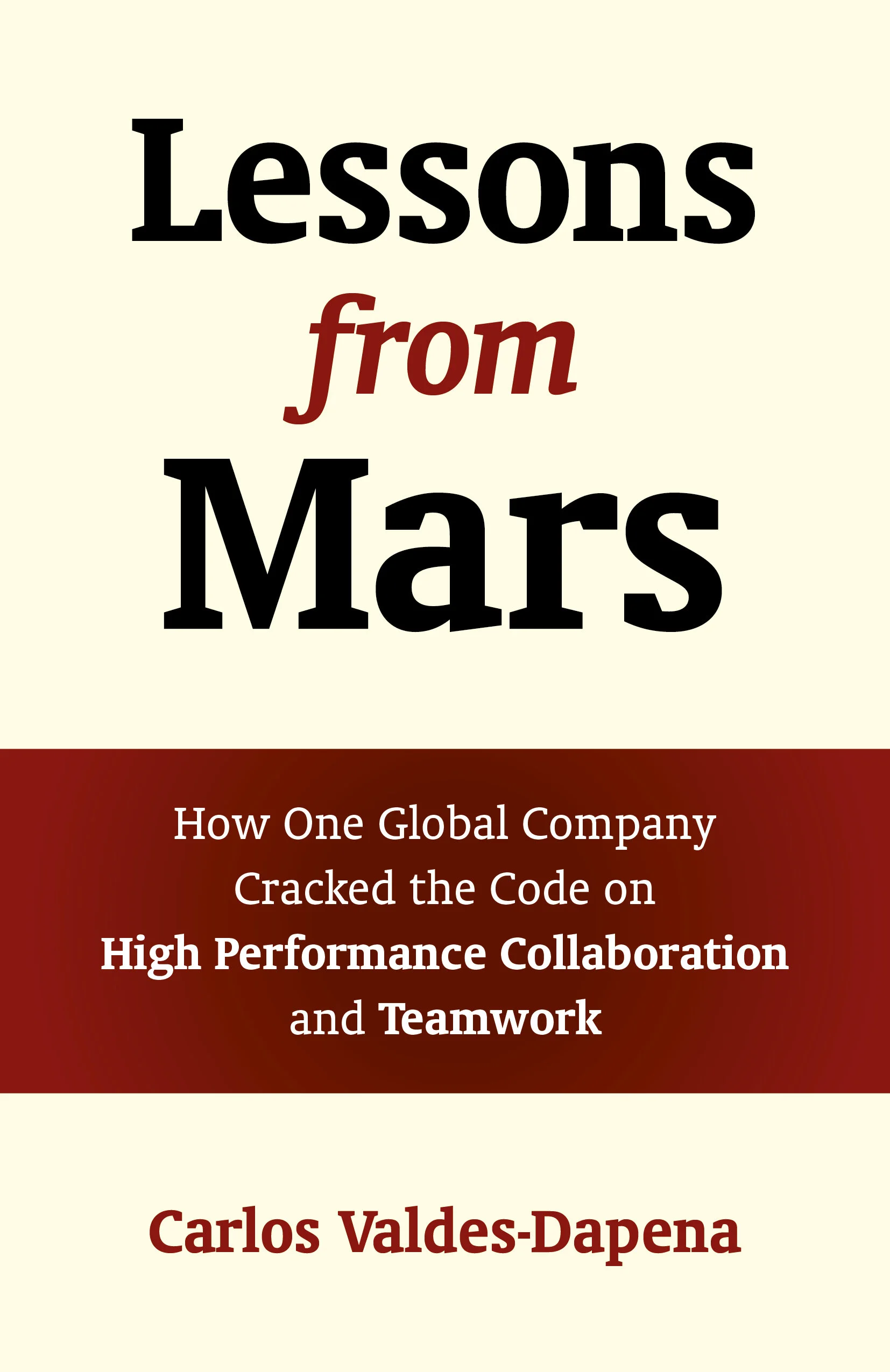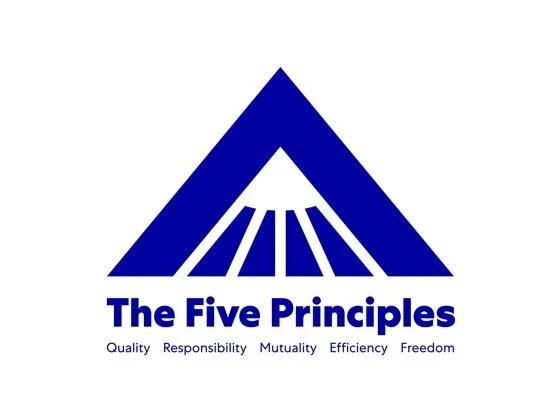Mars - An Ideal Laboratory for Team Building Research
How working with teams at Mars, Inc changed my life.
My book is entitled “Lessons from Mars”, and that is truly what it contains. Over 17 years as an associate at Mars, Inc., I was able to learn about teams hands-on and observe the effects of collaboration and team building strategies.
The culture at Mars was integral to my success in many ways, but three specific aspects made it the ideal environment for my research on team effectiveness.
EGALITARIANISM
Many people don’t know that Mars, Inc is a massive company that actually has a fairly flat hierarchical structure. This flatness is one aspect of Mars’s long-standing egalitarian culture. For instance, did you know that until a few years ago, all Mars Associates regardless of level or title punched a time clock? Even the Global President, when he was in the office, had to clock in. Also, all Mars employees, regardless of level or role are referred to as “Associates” (always with a capital “A)” and have been for decades, since before calling employees “associates” became common.
This spirit of, “We are all in it together,” is reflected in other Mars policies. The typical perks of senior management, corner offices, executive dining rooms, and executive parking spaces simply don’t exist in any of the Mars businesses. If the CCO shows up later in the morning than everyone else, she parks at the far end of the parking lot and has lunch in the cafeteria with all the other Associates.
COLLABORATION
Mars’s egalitarian ethos, where every Associate regardless of role or title is expected to work together towards common goals, naturally bred a strong culture of collaboration. Mars was using an open office in the 1930’s, well before it became a thing.
Mars’s collaborative culture is profoundly shaped and reinforced by Mars Five Principles. Unlike other corporate values that I’m familiar with, The Five Principles aren’t just words framed on a wall. Mars Associates around the world really do believe in and live by Five Principles - Quality, Responsibility, Mutuality, Efficiency, and Freedom.
In short, collaboration was in the Mars DNA before I ever joined the company.
So, since I was working as an internal consultant, they eventually wanted me to focus solely on teams and team effectiveness. This focus drove me to a deeper understanding of collaboration and how to appropriately motivate team members to drive excellent results.
DEVELOPMENT
A key focus of the Mars culture is growth and professional development. Mars University, Mars’s global Associate and Leadership development function is relentlessly focused doing what it takes to help Mars Associates grow.
A few years after I began working with teams at Mars, I was approached by Mars U to develop a module on teamwork to be included in one of the core leadership development programs. As I began to brainstorm what should be included, I reflected on my work with teams within Mars as well as my previous experience at other companies.
The more I reflected, the more I felt that none of those conventional approaches felt right. The standard team building methodologies and frameworks seemed either too complex or overly simplistic. It was easy to teach these ideas to managers, but could they really implement them in ways that made a difference? One of my colleagues encouraged me to go back to the data that I had accumulated through years of conducting interviews and surveys working with Mars teams. Through studying the inputs of over 400 team members, I found the basis for what would become our framework for high performance collaboration.
Mars’s focus on growth allowed me space to push past the traditional approaches and find what truly works for teams. The next 25 or so blogs are the Lessons From Mars I have learned and documented here and in my books.




